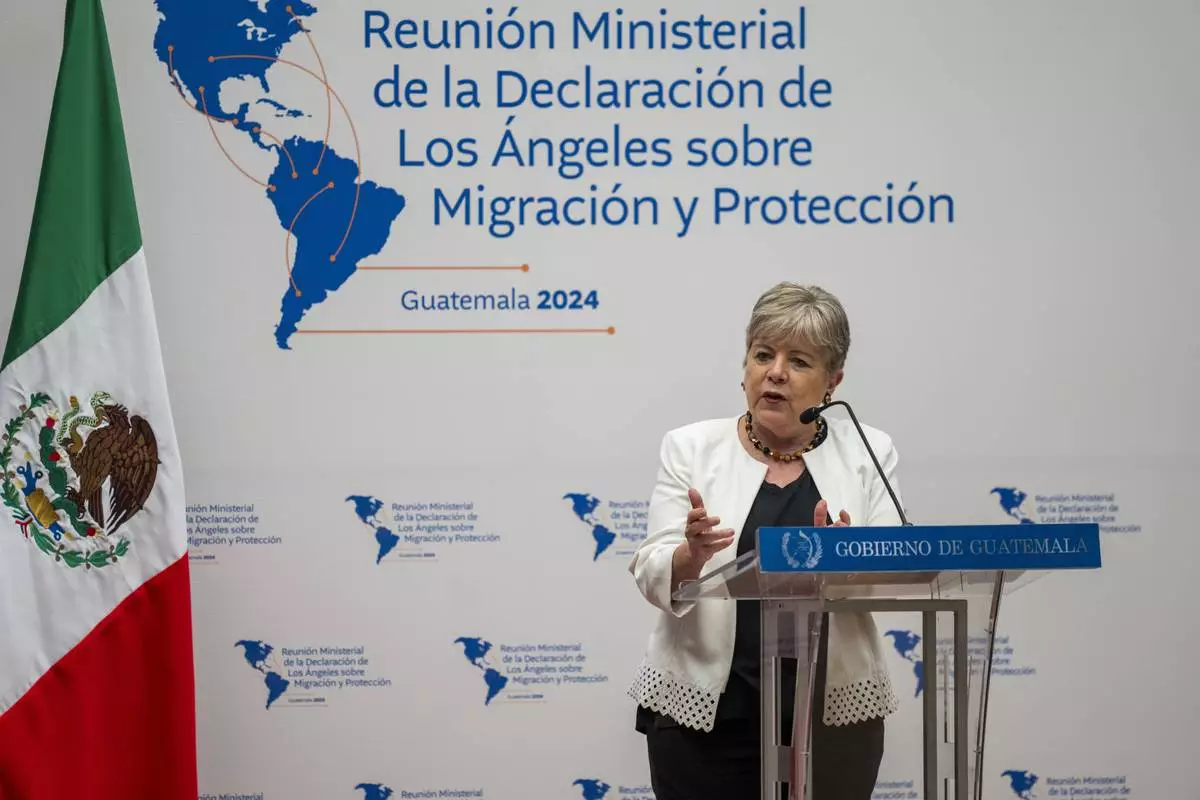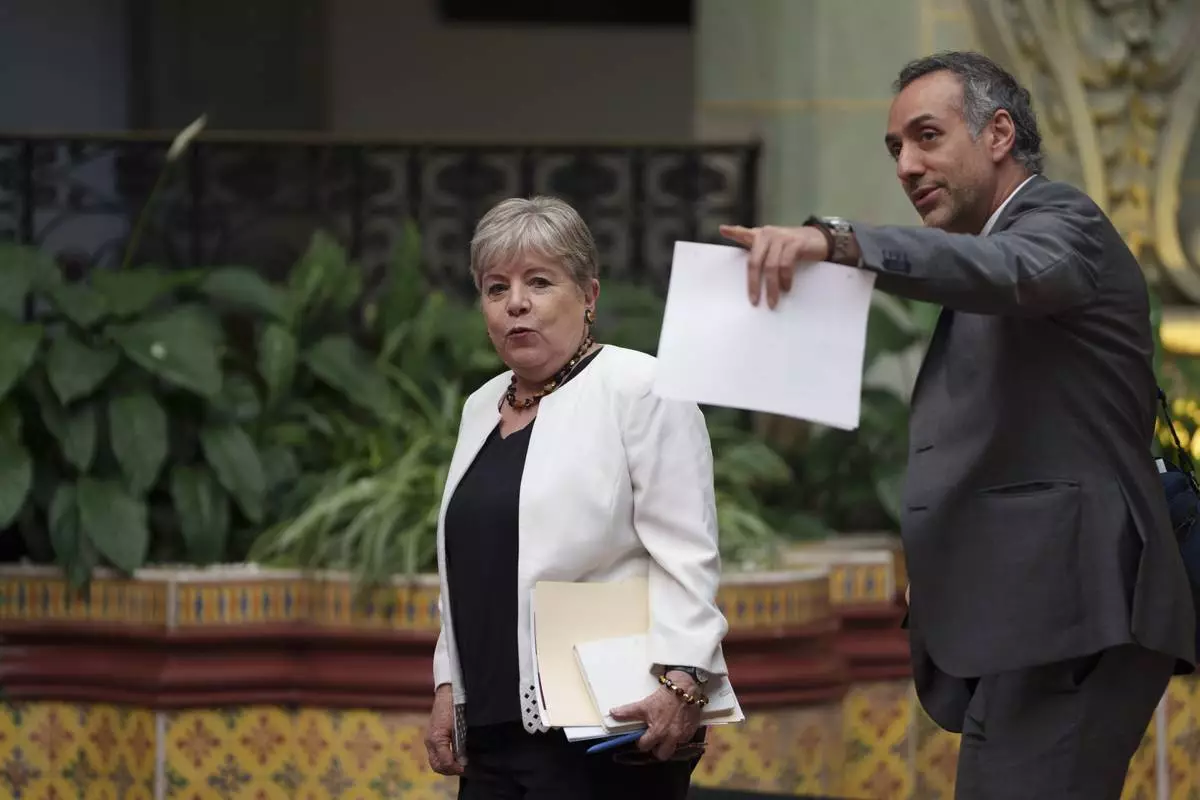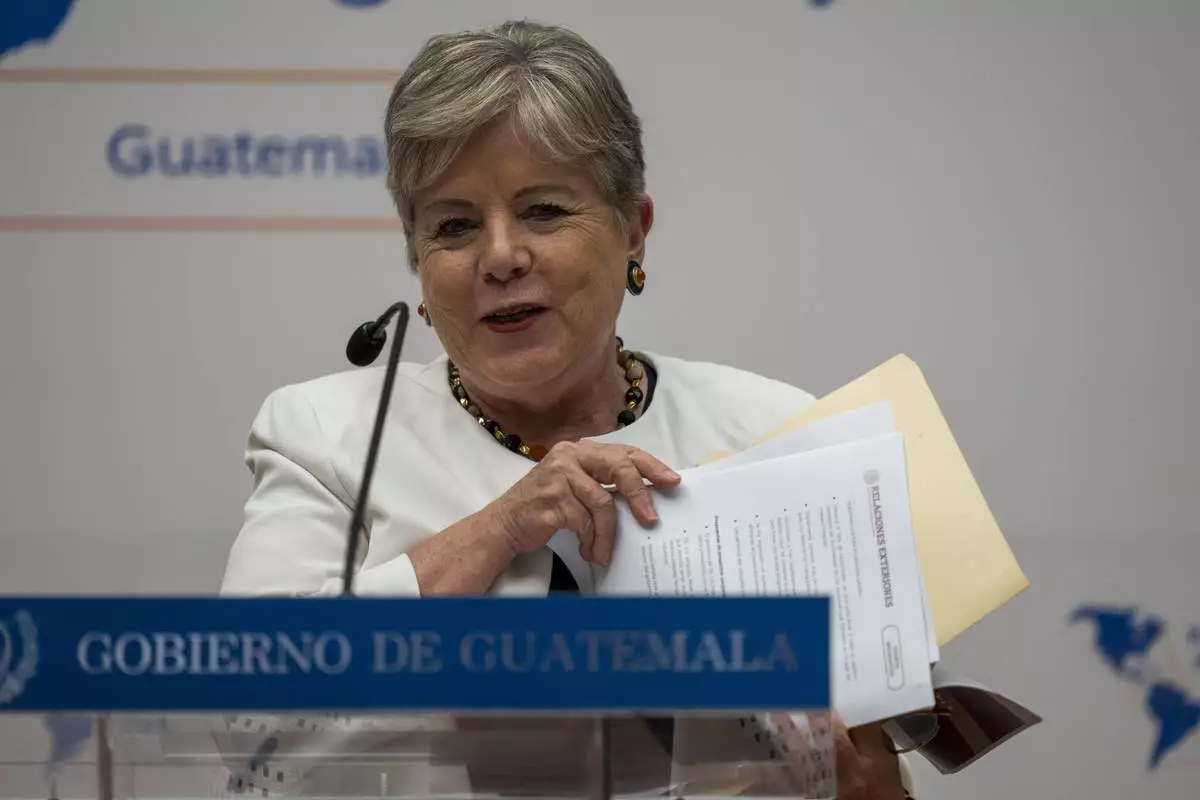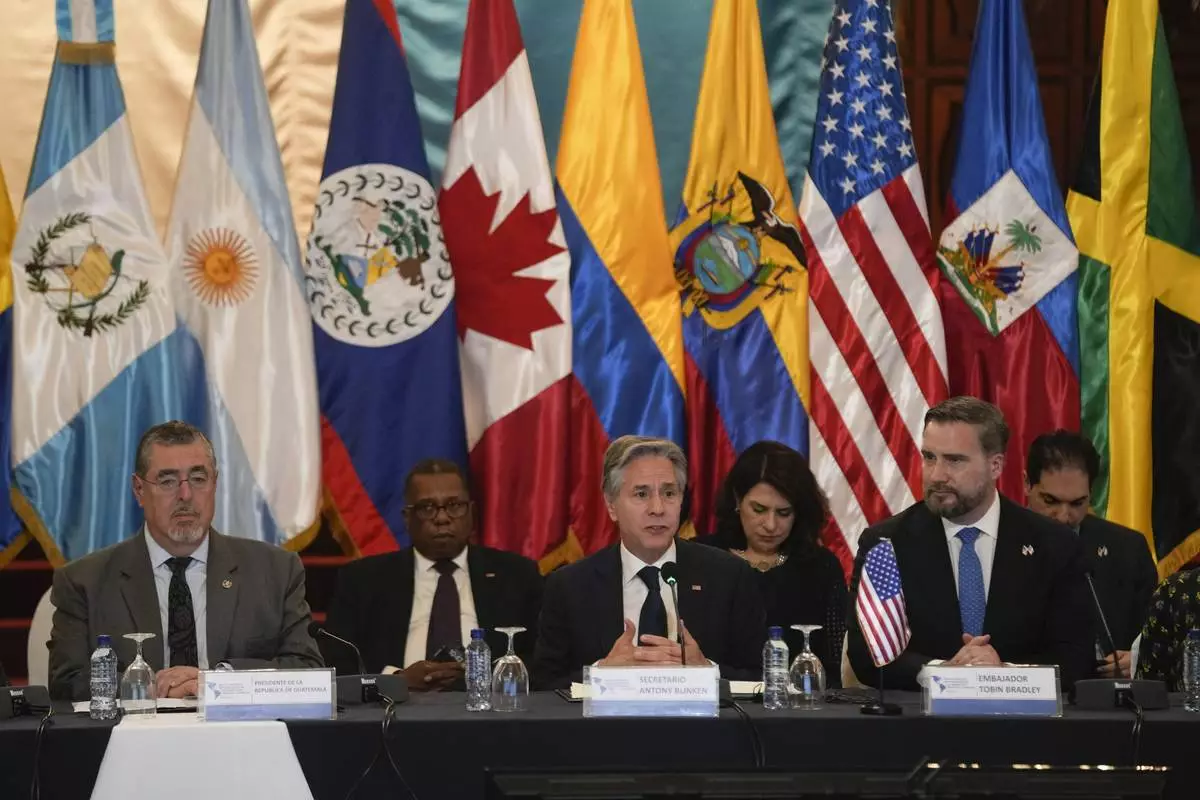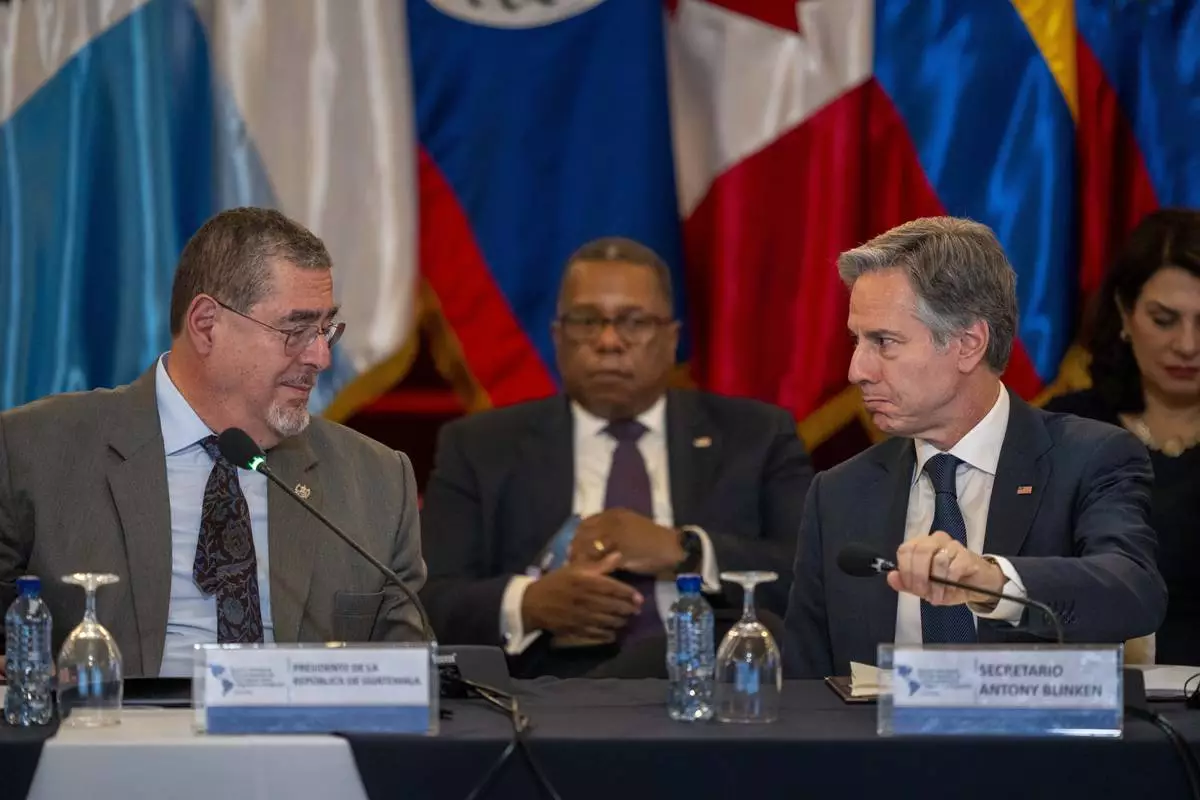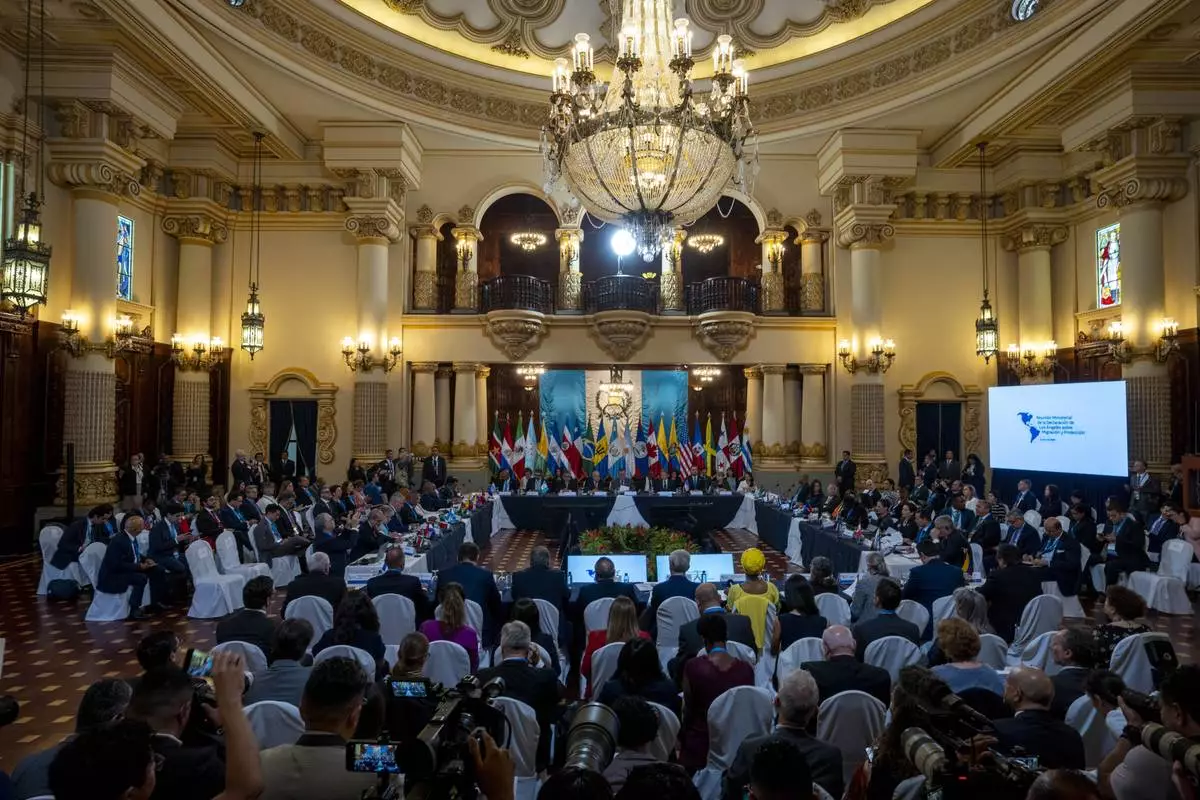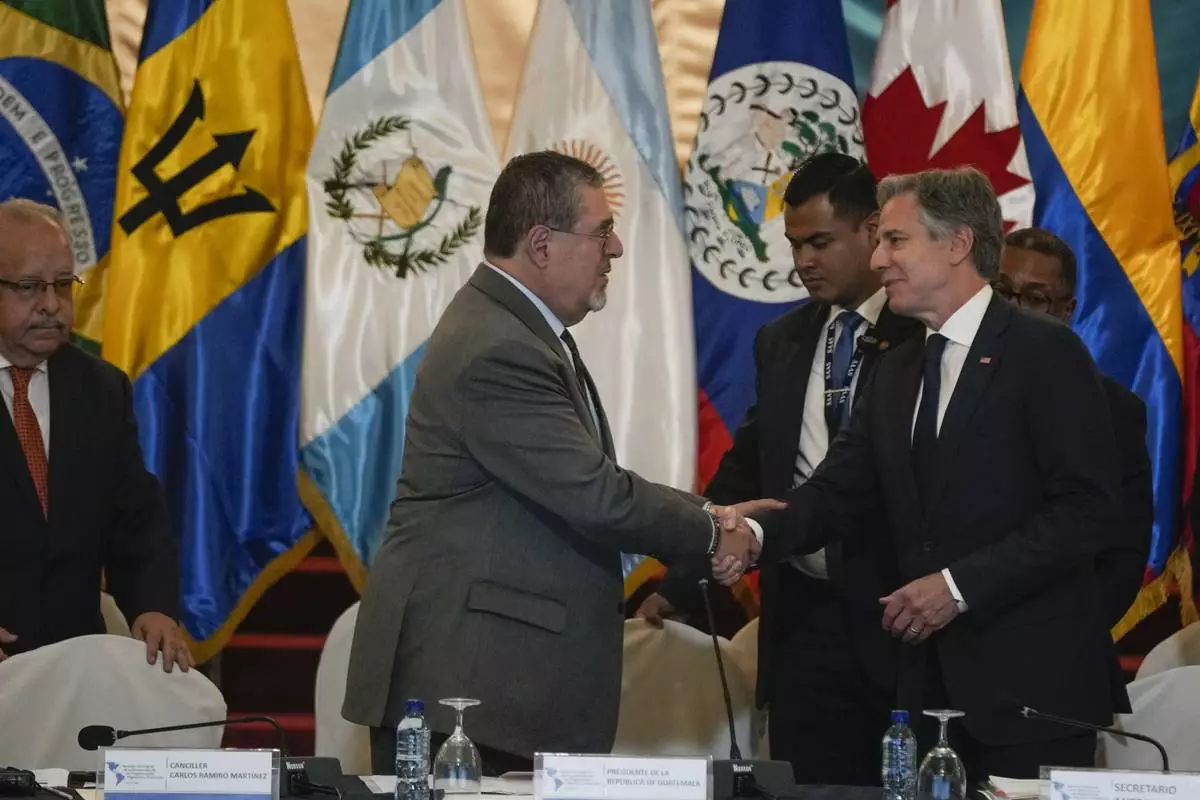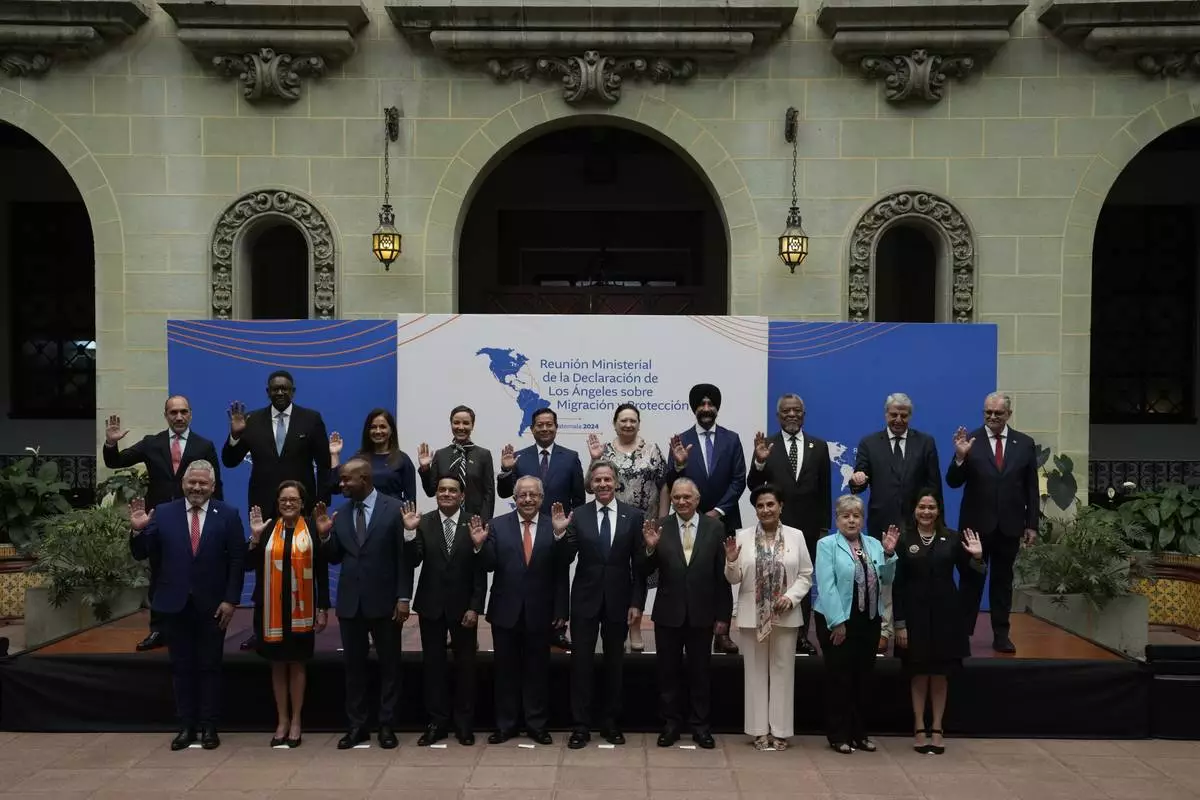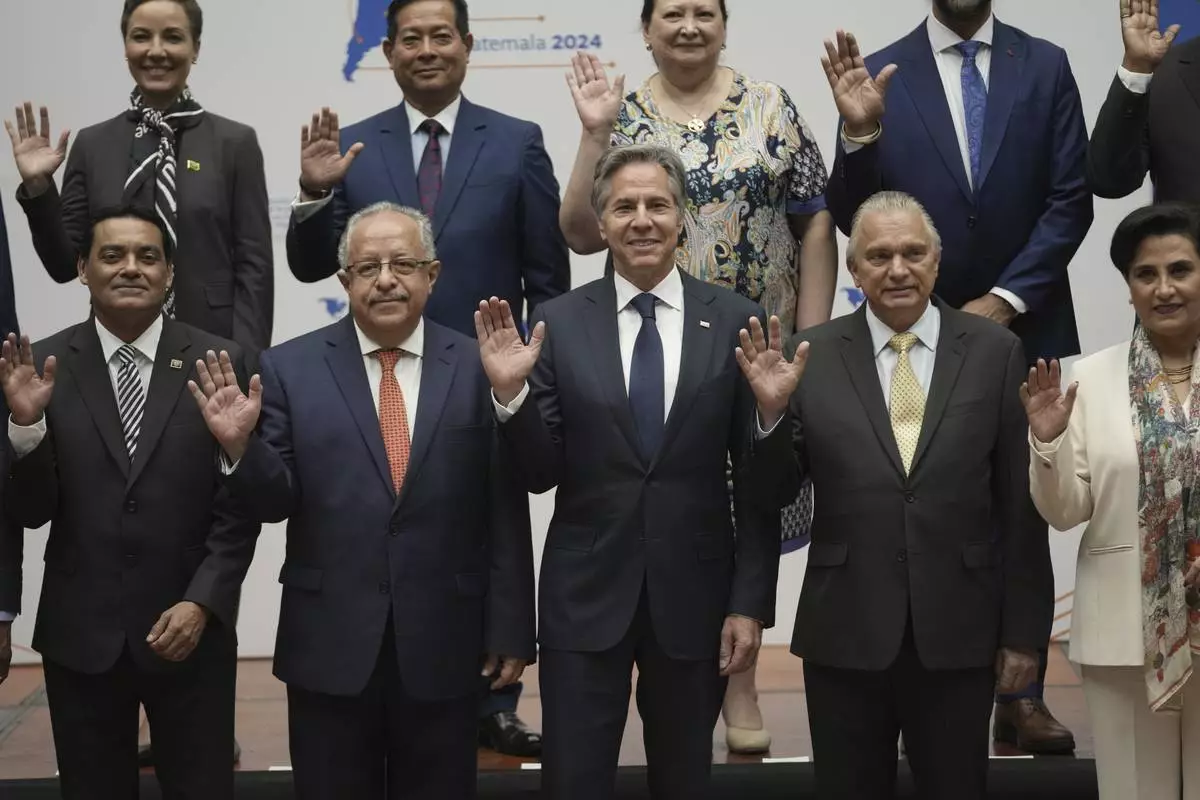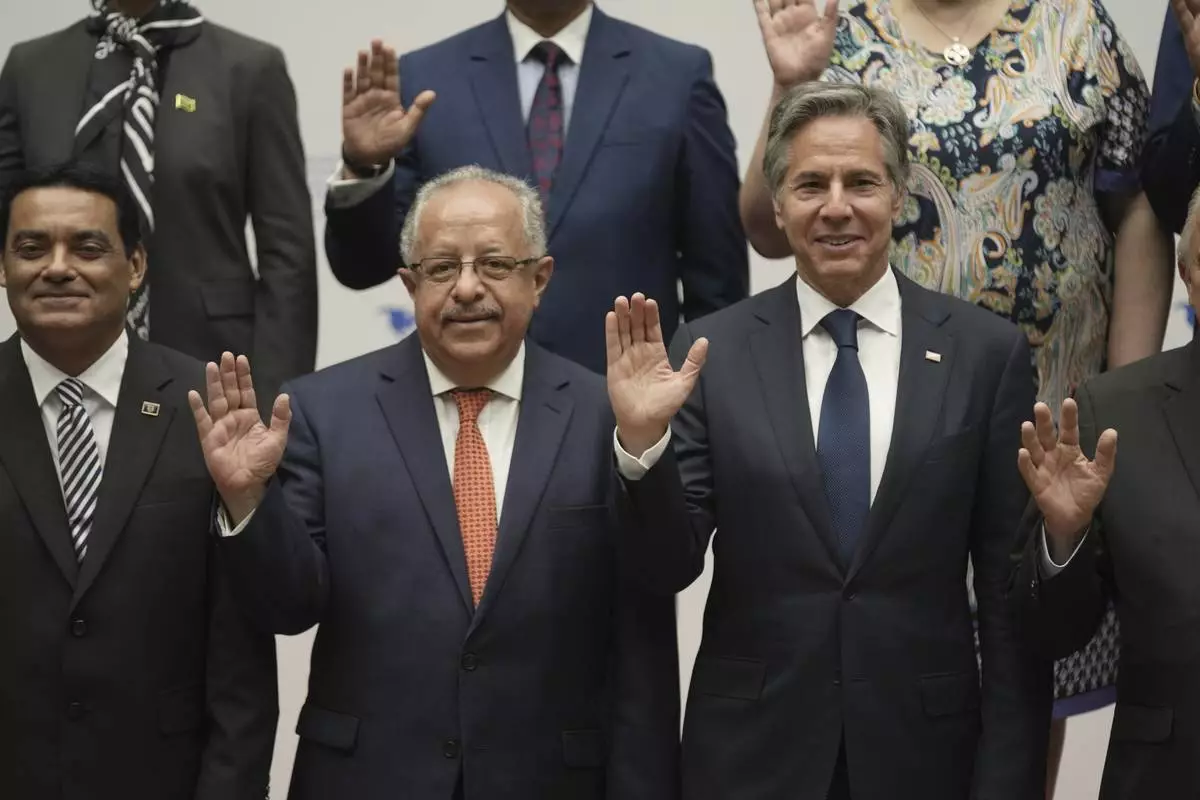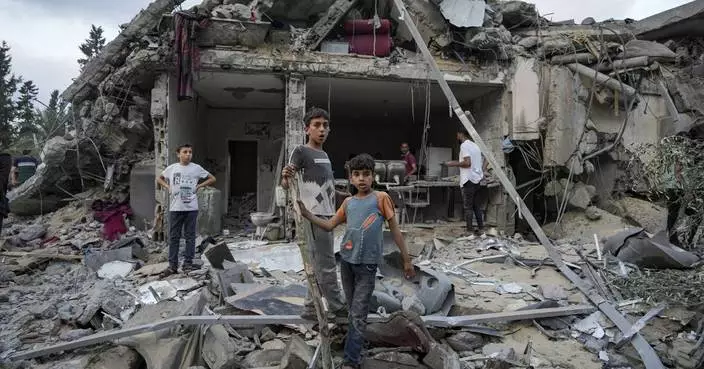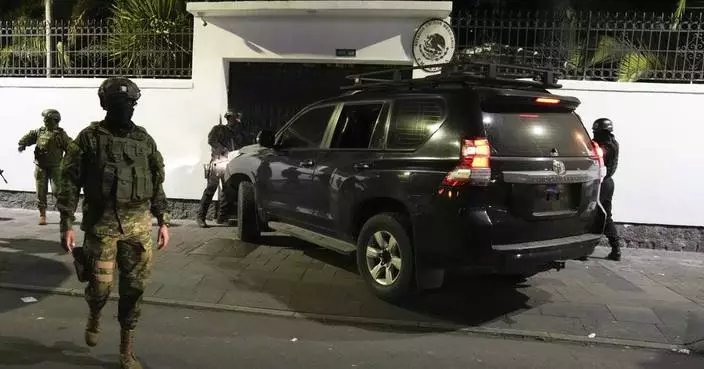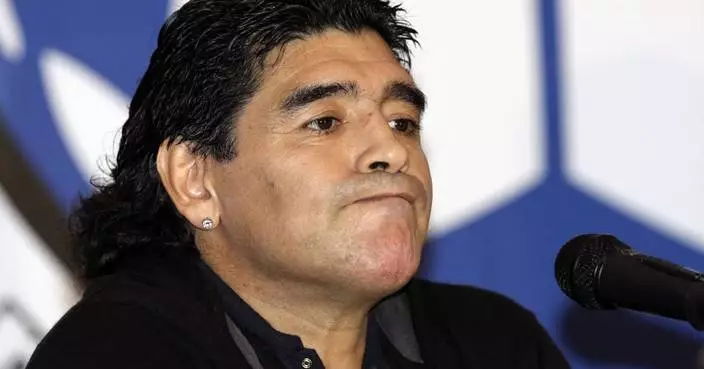Venezuela won a contested election for a seat on the U.N. Human Rights Council on Thursday despite a campaign by over 50 organizations and many countries opposed to Nicolas Maduro's government and its rights record.
There was scattered applause in the General Assembly chamber when its president announced the results of the voting for two Latin American seats. Brazil topped the ballot with 153 votes followed by Venezuela with 105 votes and late entry Costa Rica with 96 votes.
Venezuela's Foreign Minister Jorge Arreaza called the vote "a victory" that followed "a fierce and brutal campaign by the United States ... and its subordinate nations."
The Trump administration has recognized opposition leader Juan Guaidó as Venezuela's interim president and U.S. Ambassador Kelly Craft called the placing of President Nicolás Maduro's government on the council "an embarrassment to the United Nations and a tragedy for the people of Venezuela."
"That one of the world's worst human-rights abusers would be granted a seat on a body that is supposed to defend human rights is utterly appalling," Craft said in a statement after the vote.
Philippe Bolopion, Human Rights Watch's deputy director for global advocacy, called Venezuela's election "undeserved" and "a slap in the face to the country's countless victims who've been tortured and murdered by government forces, as well as the millions who have fled largely because of a humanitarian emergency the government unleashed."
The 193-member world body elected 14 members to the 47-member Human Rights Council for three-year terms starting Jan. 1. Under its rules, seats are allocated to regions to ensure geographical representation.
In other contested races, Iraq lost out in the Asian group contest for four seats to Japan, South Korea, Indonesia and the Marshall Islands, and Moldova lost in the Eastern Europe group race for two seats to Armenia and Poland.
The Africa region had four countries on the ballot —Benin, Libya, Mauritania and Sudan — for four seats. But diplomats said the regional group did a last-minute switch, putting Namibia on the ballot instead of Benin to include a nation from southern Africa, so Namibia, Libya, Mauritania and Sudan were elected.
There was no competition for the two Western group seats and Germany and the Netherlands were overwhelmingly elected.
The Geneva-based Human Rights Council can spotlight abuses and has special monitors watching certain countries and issues. It also periodically reviews human rights in every U.N. member country.
Created in 2006 to replace a commission discredited because of some members' sorry rights records, the new council soon came to face similar criticism.
The United States left the council partly because it saw the group as a forum for hypocrisy about human rights, though also because Washington says the council is anti-Israel.
Craft, the U.S. ambassador, said Thursday's vote "provides ironclad proof that the Human Rights Council is broken and reinforces why the United States withdrew."
Israel's U.N. Ambassador Danny Danon said in a statement immediately after Thursday's results were announced that: "The Human Rights Council continues to abandon human rights and is now in the business of protecting dictators and war crimes."
"In Venezuela, a dictator starves his people, and in Libya there are camps that torture African migrants," Danon said.
Venezuelan officials regularly reject any criticism of the country's human rights record.
When the U.N.'s high commissioner for human rights, Michelle Bachelet, chronicled cases of torture, sexual abuse and extrajudicial killings in the country, Deputy Foreign Minister William Castillo said her report "does not reflect the reality in our country."
He called it a "biased vision" of Venezuela and demanded it be "corrected."
Maduro's Attorney General Tarek William Saab on Thursday also announced the release of 24 people he called "political prisoners" in a gesture stemming from a new round of negotiations with minority parties that don't include Guaidó.
However, Saab did not immediately release the prisoners' names.
Human Rights Watch's Bolopion said the U.N. Rights Council should continue to scrutinize the Maduro government's "abuses," even with Venezuela at the table, and hold those responsible to account.
"The UN General Assembly should recognize that electing serial rights abusers like Venezuela betrays the fundamental principles it set out when it created the Human Rights Council," he said.
Before the vote, Human Rights Watch also criticized Brazil's President Jair Bolsonaro for embracing "rhetoric hostile to human rights norms" and for giving "a green light to criminal networks destroying the Amazon rainforest."
It criticized Poland for systematically eroding "the independence and effective functioning of its judiciary," Indonesia for rising "religious intolerance" and Mauritania for using laws on criminal defamation, spreading "false information and blasphemy to prosecute human rights activists, bloggers and political dissidents."
And it urged Sudan's new transitional government to "set an example on human rights promotion by taking concrete steps toward accountability and reforms."
Associated Press journalist Scott Smith contributed to this report from Caracas, Venezuela.



